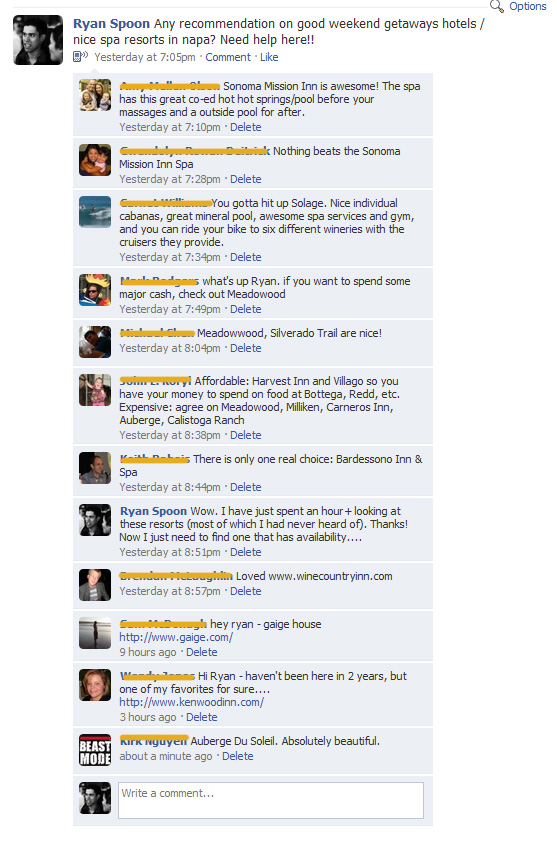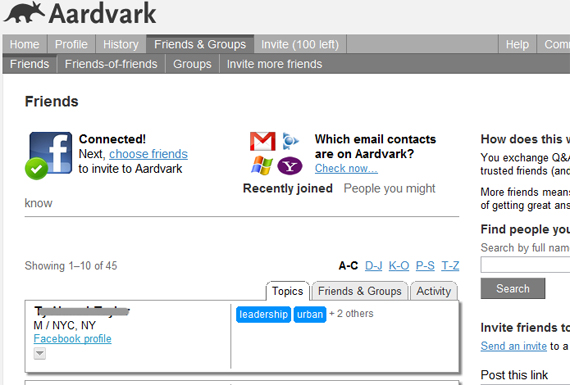While leading natural search strategy at eBay, we had a motto: Content is King. It wasn't a unique tagline - even CKX, Inc (American Idol, Elvis Presley, etc) stands for "Content is King". While at the Polaris Digital Media Summit in Jackson Hole this past week - several folks (including myself) referred to social media as the "new SEO". When it comes to traffic acquisition and product marketing strategies, Facebook is indeed the new Google - it is top of mind for marketers in much the same way that natural search was a primary focus over the last several years.
And if SEO is driven by content... Social media is driven by context.
Google :: Facebook SEO :: SGO Content :: Context
In fact, context is so critical to social efficacy that it has been billed as SGO: Social Graph Optimization. Meebo founder Seth Sternberg is credited with the term: "Search has been great traffic driver. Now social media drives [traffic] and needs to be optimized." Much of the conversation at the summit was focused on driving traffic through social media and optimizing content across the social graph. The consensus was that context drives relevancy... and thus virality... and thus efficacy. Consider social sites like Quora and Aardvark as examples: using Facebook Connect and algorithms, questions are delivered contextually based upon your social graph, knowledge and activity.
And as the world of friends / followers, status updates and 'check-ins' grows - context helps stand out among the noise and therefore alleviate users from being overwhelmed.

This is further complicated by Facebook's "News Feed" - which itself is akin to Google's black-box search algorithm. We have a general sense for how it works and what Facebook values: activity (comments, likes, shares) results in content being "news worthy". As it has been described by Alex Shultz before, it is about "interestingness squared":
- content that is considered "interesting" is rewarded (highlighted in newsfeed with better chance to becoming viral) - and content that is uninteresting (ie irrelevant) is punished (relegated to "live feed") and consequently has difficulty gaining visibility
As you think through social media and optimization, think through how it relates to your brand and product experience... and how the outputted content relates specifically to users (both the publishers and consumers). The more relevant and closed that loop is, the more effective the experience will be and the more likely your users are to engage / share.



